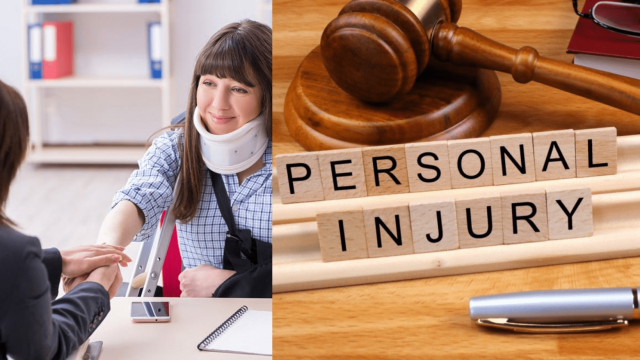Just because you've been hurt in an accident doesn't necessarily mean that you will get the compensation you deserve. You need to prove liability through personal injury law to get the compensation you deserve. If you're feeling uneasy about a personal injury claim, it's important to know your rights and understand what options are available to you with the help of an attorney. Here are six things you need to do to get the compensation you deserve:
1. Seek treatment
If you feel that your injuries are such that you need to seek treatment from a medical professional, it is highly recommended that you do so as soon as possible. The longer you wait, the more difficult it will be for doctors and attorneys to prove that your injuries resulted from the accident and not something entirely different. The treatments you receive can be used as evidence in court. These treatments are proof that you sustained damage from the accident and you suffered financial losses.
2. Legal Counsel
You have the right to hire a lawyer. Use it. Discussing your rights with a personal injury attorney after an accident is very important since it is the only way to protect them. You don’t need to worry about the legal fees since they work on a contingency fee structure. The lawyer will get paid only if they win the case. Only lawyers can protect you from the insurance companies and their cheap tactics to lowball you.
3. File a lawsuit
Many personal injury victims decide to accept the insurance settlement offered by their insurance company. This is often too low and makes it difficult for the victim to receive compensation that will compensate them for their pain, suffering, and lost wages. Accepting the first settlement offer from the insurance company is a grave mistake. You need to file a lawsuit against the negligent party and their insurance company to get the compensation you deserve.
4. Document your injury
Before filing a personal injury lawsuit, it is extremely important that you document any injuries you have sustained from the accident. This will be necessary to build your case when trying to prove liability. You may be entitled to compensation for your injuries if you can prove that the defendant was at fault. The negligent party may also be required to pay your attorney's fees. This is usually the case if they are found at fault in the accident.
5. Determine who is liable
You will want to determine who exactly is responsible for the accident and the damages that resulted from it. In a personal injury case, the plaintiff has the burden of proof. The plaintiff has the responsibility to prove that the defendant’s negligence caused them losses. You can use the medical treatments you received as evidence.
6. Object to false statements
At the very beginning of your case, you have the right to object to any false statements made by the other party or their representatives. If a doctor advises you not to pursue your injury or an attorney is downplaying your injuries, you have the right to call them out. Your case depends on facts and evidence that can only be obtained and verified by complete medical records and a medical examination.
Conclusion
There is no way of knowing how many personal injury claims arise in the United States every year. Some people believe that negligence on the part of a person is covered under the umbrella of 'no-fault insurance. This is not necessarily true, especially if you are dealing with medical expenses or lost wages. If you've been injured in a car or truck accident, it is important to know your rights and your possible choices if you have been hurt due to another's negligence.






